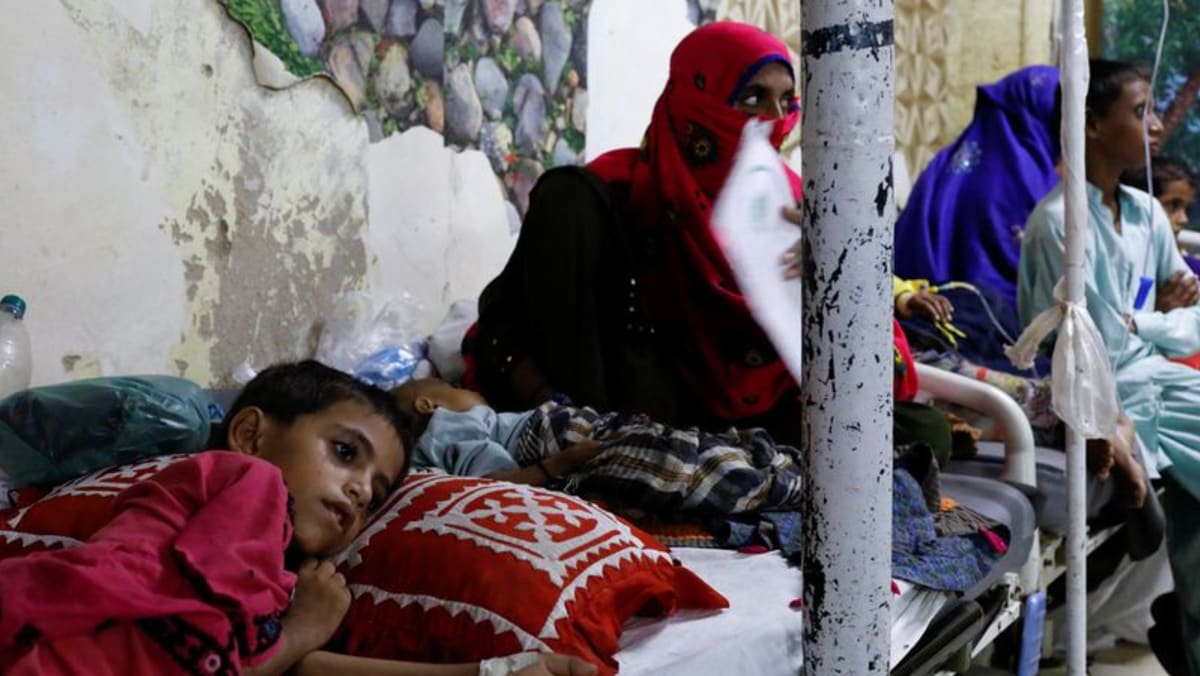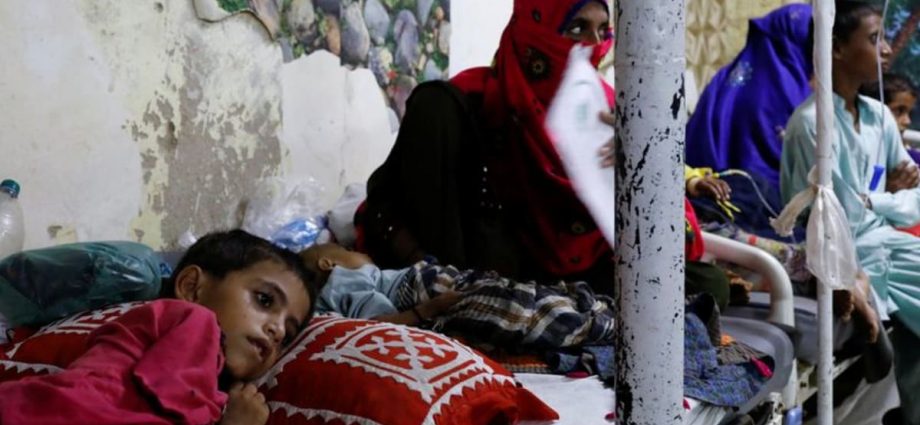
“SECOND DISASTER”
According to the health department of Sindh province, the worst-affected region, 17,285 cases of malaria have been confirmed since Jul 1.
Anticipating the risk of disease outbreaks after the rescue and relief phase of the floods, the Sindh government is trying to hire more than 5,000 health professionals on a temporary basis in districts most at risk.
“We are short of human resources considering the magnitude of the burden of disease following the unprecedented rains and floods,” Qasim Soomro, provincial lawmaker and parliamentary health secretary of the Sindh government, told Reuters.
The World Health Organization (WHO) has raised concern about an impending “second disaster” of water-borne diseases spreading across the country, particularly in Sindh.
In the hospital ward in Sehwan, a young man with a high fever was having fits on a bed outside the main emergency room. His mother ran to Ahmed, who attended to the patient and asked a male nurse to place cold pads on his forehead.
The air was heavy with humidity, and there were not enough air conditioners to cool temperatures in overcrowded corridors lined with beds. The wards were filled to capacity and a handful of beds had more than one patient on them.
Ahmed, a graduate of a university in China, described the pressure he and other medics were under.
“With such influx, we … cannot wait for test results for each patient to start the treatment,” he said, adding he begins administering medicine for malaria as soon as he sees some symptoms.
The institute in Sehwan serves people from neighbouring towns and districts, including those living in camps while the waters recede and rebuilding can begin.
Jagan Shahani’s daughter fell unconscious after getting a fever around a week ago. He used a boat to get out of his flooded village of Bhajara and flagged down a car on the nearby road that took them to Sehwan.
“Doctors said she had malaria,” he said late last week. “This is our fourth night here. There is nothing here to eat but Allah has been very kind to provide everything,” added Shahani, whose 15-year-old daughter Hameeda is now recovering.
On the outskirts of town, hundreds of displaced people queued up for rations being distributed at Lal Bagah, a tent settlement where displaced families prepared tea and breakfast on open fires.
The Indus Highway that runs past Sehwan is dotted with tent camps for displaced people.
Some are beginning to return home where waters have retreated far enough, but not all are so lucky.
“There is no one here to help me but Allah. I pray to Allah that the waters recede in my village and I can return to my home,” said Madad Ali Bozdar.
Bozdar, 52, is from Bubak, a town located on the northeastern bank of Manchar Lake. Speaking on Friday, he said his village was still under 3m to 4m of water. He expected to be able to go back in around two months’ time.

